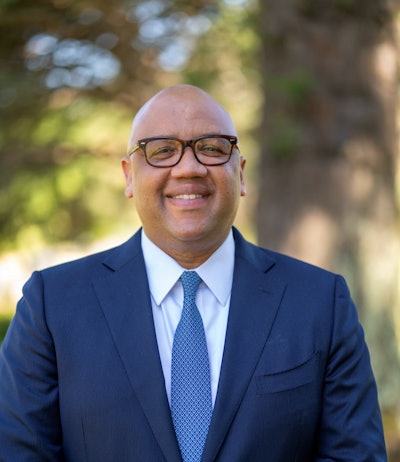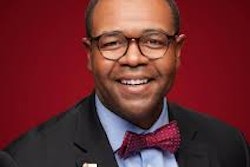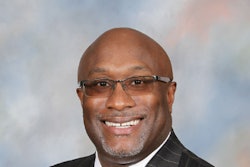 Dr. David M. Johnson
Dr. David M. Johnson
Accreditation is the process by which we assure the students and communities we serve that our institutions meet the mark. While this is a collective undertaking, most often a senior-level administrator is designated to lead that effort and serve as the Accreditation Liaison Officer (ALO). The college president, however, is responsible for the outcome. Hence, the CEO should be acquainted with the guidelines, standards, metrics, and policies that drive the accreditation process.
The effective and prudent management of the budget is one of the most challenging tasks a CEO undertakes. How one approaches resource allocation—whether it involves the funding of positions, projects, or priorities—occupies a prominent place in the minds of the faculty, classified staff, students, community, and board members. Inevitably, they will make judgments about the CEO’s focus, values, and even character based on how funds are disbursed. Thus, decisions must be informed by a critical understanding of funding sources, an awareness of the fiscal exigencies, and a fearless commitment to the institutional mission. CEOs would do well to remember that the mission should drive the budget—not the converse. One must have the courage and conviction to make difficult choices that reflect a mission-driven approach, even while bearing in mind the importance of the “bottom line.”
CEOs often lament that attending to the day-to-day tasks of college administration leaves them little time to get outside of their offices (let alone their campuses). But we should never neglect the community. Our institutions are denoted as community colleges for a reason, so it is imperative that leaders cultivate and maintain relationships with local residents, non-profit organizations, employers, and politicians. The CEO should be the most visible and persuasive ambassador for the institution. Chamber of Commerce meetings, Rotary Club events, neighborhood block parties, cultural festivals, and church fish fry fundraisers—the CEO not only needs to show up but be actively engaged as well. This is the most effective way to cultivate donor relationships, amplify the “college brand,” and reinforce the notion that your institution is not just a community college but the college in the community.
For CEOs employed as college presidents (as opposed to superintendents and chancellors), maintaining a constructive and collegial relationship with the district office is integral to ensuring a successful tenure. One must always bear in mind that the campus/district relationship is a symbiotic one. In many instances, the district office has the capacity and expertise to manage projects that the colleges cannot. Maligning district operations (or the board leadership for that matter) undermines the interdependency necessary to move the collective enterprise forward. College presidents must also demonstrate loyalty, honesty, and discretion if they hope to earn district trust and remain employed long enough to achieve anything noteworthy on their campuses.
A CEO’s ability to ensure commensurate educational outcomes for all students and create a working/learning environment where every person is valued, supported, and expected to reach their full potential is the most important standard by which one’s success is measured. Thus, equity is the watchword—and not for the sake of achieving institutional metrics that we can hail in state reports and educational publications. Rather, CEOs should commit to using the full reach and resources of our offices to provide students and employees with what they need, when they need it, for as long as they need it to attain their educational and professional goals.
The value students place on their educational experience is often tied to their physical learning environment—the institutional facilities. Well-appointed classrooms, nicely furnished study areas, attractive landscaping, pristine lavatories—all of these things signal to our students that we hold them (and their academic pursuits) in high regard. When students feel respected and valued they are more likely to do better academically.
Many aspiring CEOs believe that demonstrating one’s ability to lead in a bold and decisive manner is the key to landing the job. But educational leaders who have enjoyed a measure of longevity and success understand that approaching governance in a way that is respectful and inclusive is even more important. Whether we call it participatory governance or shared governance, college constituent groups should come away from the decision-making process feeling like they have been heard and understood.
CEOs should view and utilize human resources as a vehicle to help everyone reach their full potential in the service of students and the institutional mission. To take the attitude that human resources exist primarily to navigate collective bargaining agreements and initiate the hiring or firing of employees misses the point. As leaders we need to create opportunities for the professional development and personal transformation of our colleagues—HR is an effective tool for doing that.
I will end by underscoring the importance of integrity. As CEO, one is confronted constantly with difficulties, dilemmas, and decisions that test your resolve, patience, and character. In the midst of that, the ethically limber are more likely to succumb to the lure of doing what is easy, expedient, and self-serving. The desire to avoid the derision and resentment of students, colleagues, and community members is natural, so it is tempting to compromise here and there to avoid the derision that accompanies taking positions that are controversial and unpopular. But we must always remember that character matters. And those whose wrath you are trying to avoid will have even less regard for you when it is clear that you are unwilling to stand on principle in times of crisis and uncertainty.
Dr. David M. Johnson is president of Merritt College.
Behind the Desk: Perspectives of Black Community College CEOs is a column edited by Drs. Tina M. King, Jamal A. Cooks and David M. Johnson.
















